NATO chief warns of ‘real risk’ of war as talks with Russia end
NATO Secretary-General Jens Stoltenberg has warned of “a real risk” of a new war in Europe, stressing the need for further dialog between members of the Western military alliance and Russia to resolve the ongoing crisis over Ukraine.
Stoltenberg made the remark on Wednesday after four hours of talks at the meeting of the NATO-Russia Council (NRC) over Ukraine ended without progress in Brussels.
The NATO chief described the meeting as a “defining moment for European security,” but said “significant differences” had remained on the issue of Ukraine potentially joining the US-led military alliance.
“We had a very serious and direct exchange on the situation in and around Ukraine and the implications for European security,” Stoltenberg said. “Our differences will not be easy to bridge but it is a positive sign that all NATO allies and Russia sat down around the same table and engaged on substantive topics.”
“There is a real risk for a new armed conflict in Europe,” he said, expressing the need “to resume dialog and to explore a schedule of future meetings.”
Stoltenberg also underlined that Ukraine had the right to decide its future security arrangements, adding that NATO would continue to leave its door open to new members.
Russian Deputy Foreign Minister Alexander Grushko, for his part, described Wednesday’s talks as “serious, deep, and substantive.”
He also emphasized that NATO’s expansion posed a threat to Russia’s security, warning that Moscow would take military steps if political measures were not enough to “neutralize the threats” it faced.
Grushko said that the “further sliding of the situation could lead to the most unpredictable and most severe consequences for European security.”
“It’s absolutely imperative to end the policy of open doors and offer Russia legally binding guarantees precluding NATO’s further expansion eastward,” the Russian official said.
“The freedom to choose ways of ensuring one’s security must not be implemented in a way that infringes on the legitimate security interests of others,” he added.
Grushko did not rule out future discussions with the US-led military alliance.
This comes as the first round of security talks between Moscow and Washington also ended with no progress in the Swiss city of Geneva on Monday.
Russian Deputy Foreign Minister Sergei Ryabkov and his American counterpart, Wendy Sherman, held more than seven hours of negotiations, which focused on a wide-ranging new security arrangement that Moscow is seeking with the West over NATO’s eastward expansion and Ukraine’s potential membership in the US-led military alliance.
In press briefings after the talks, the two diplomats spoke of substantial differences. Ryabkov said Russia and the US had “opposite views on what needs to be done,” and Sherman said the Russian proposals had been “simply non-starters to the United States.”
Ahead of the first round of the talks on Monday, Stoltenberg warned Russia of “severe costs” if it launched an attack on Ukraine. Stoltenberg also said he did not expect the talks to “solve all the issues,” but expressed hope that the negotiations could pave the way for a diplomatic solution.
Russia is due to hold another round of talks with the Organization for Security and Cooperation in Europe (OSCE) in Vienna on Thursday.
Western governments accuse Russia of planning an invasion of Ukraine amid a military buildup near the Ukrainian border. Moscow rejects the allegation and insists that deployments are defensive in nature.
Moscow has repeatedly reiterated that expansion of the NATO military infrastructure in Ukraine is a red line for it and that any future expansion must exclude Ukraine and other former Soviet countries. Russian President Vladimir Putin has previously warned that Moscow will act if NATO crosses its red lines in Ukraine.
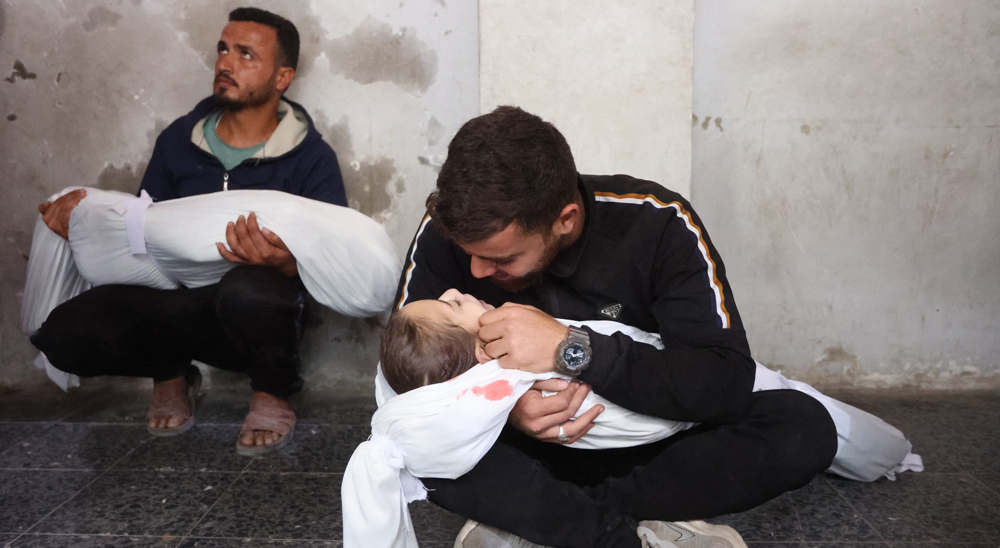
Ten Britons accused of war crimes during Israel’s Gaza genocide; complaint filed
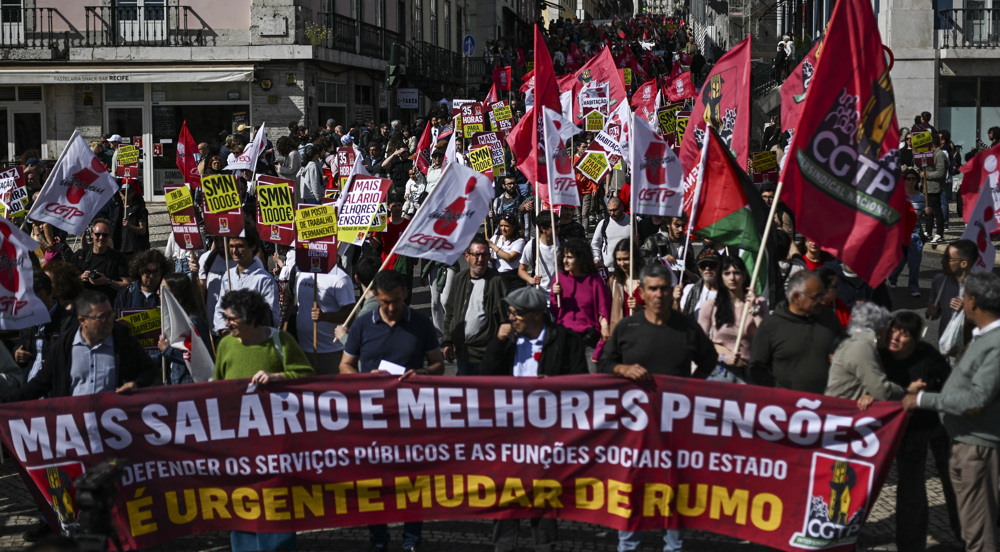
Hundreds march in Lisbon to demand better working conditions
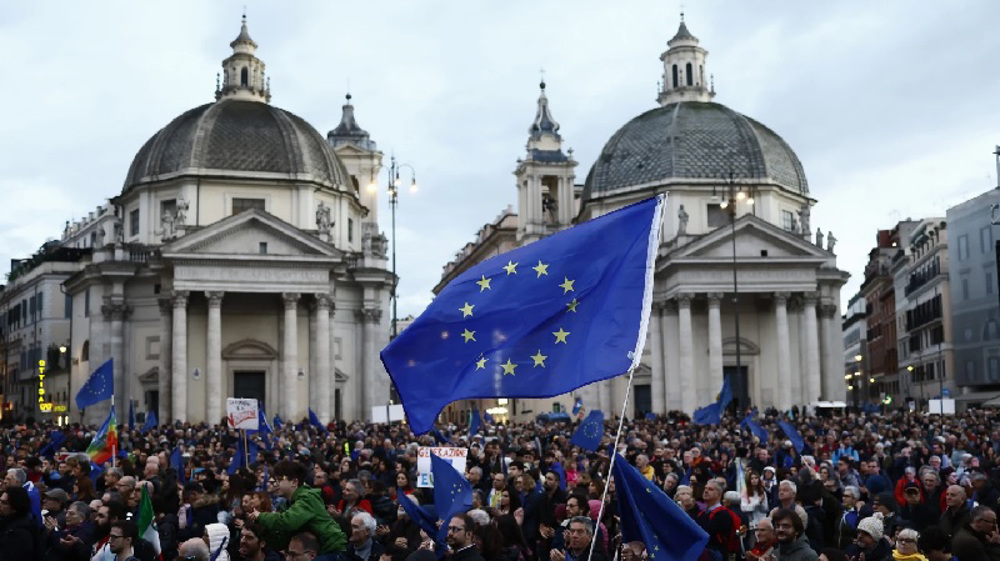
Italians against ReArm Europe
Eye for an eye: Yemen upends US-UK-Israeli war plots, stands unshaken with Gaza
US airstrikes target key educational, training center in Yemen
Al-Ahli Hospital bombing: Israel strikes last functioning north Gaza health facility
VIDEO | Press TV's news headlines
VIDEO | Paris hosts week-long pro-Palestinian rallies
US ‘Tactical Terrorism Response Team’ flags pro-Palestinian attorney at customs
VIDEO | Pro-Palestine demonstrators in UK slam BBC
VIDEO | Protesters form human chain in front of US Embassy in London


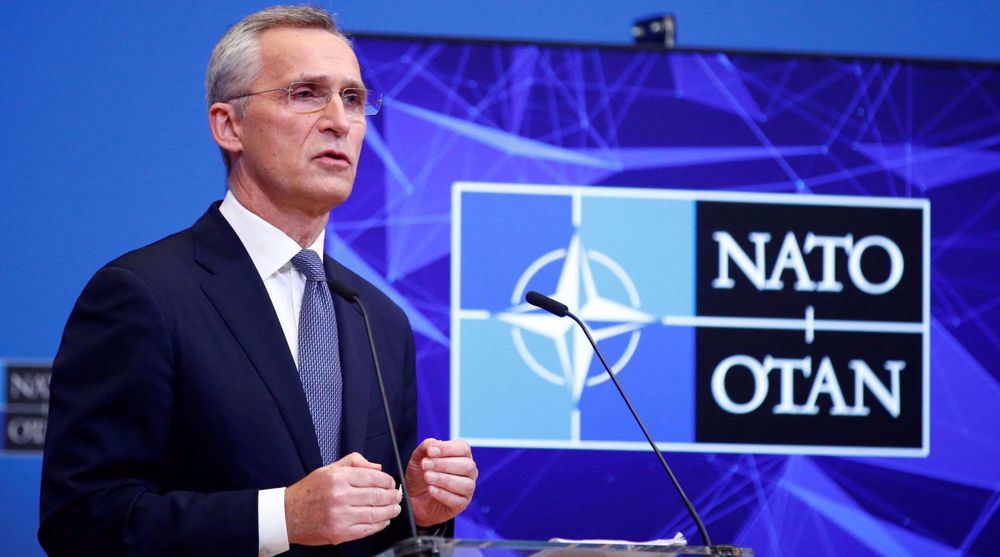
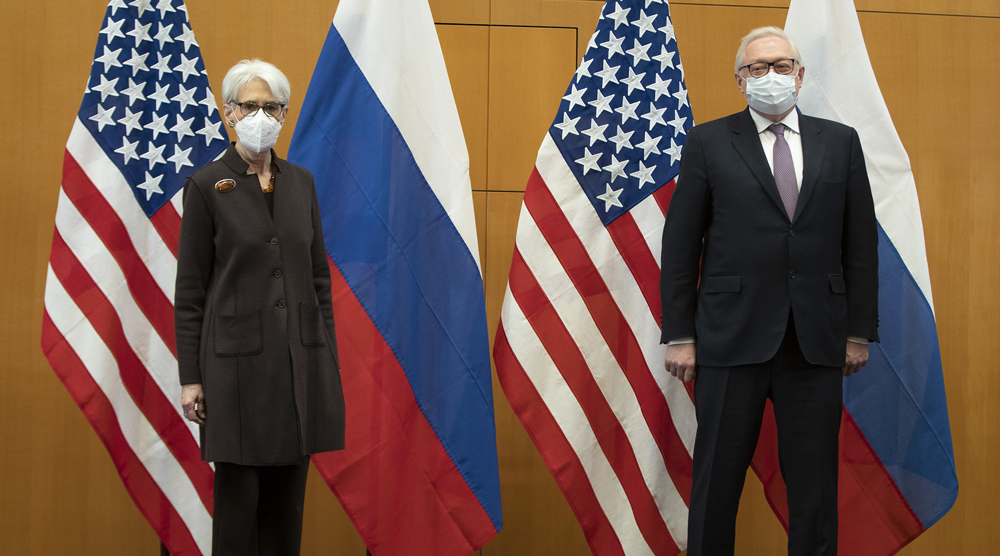
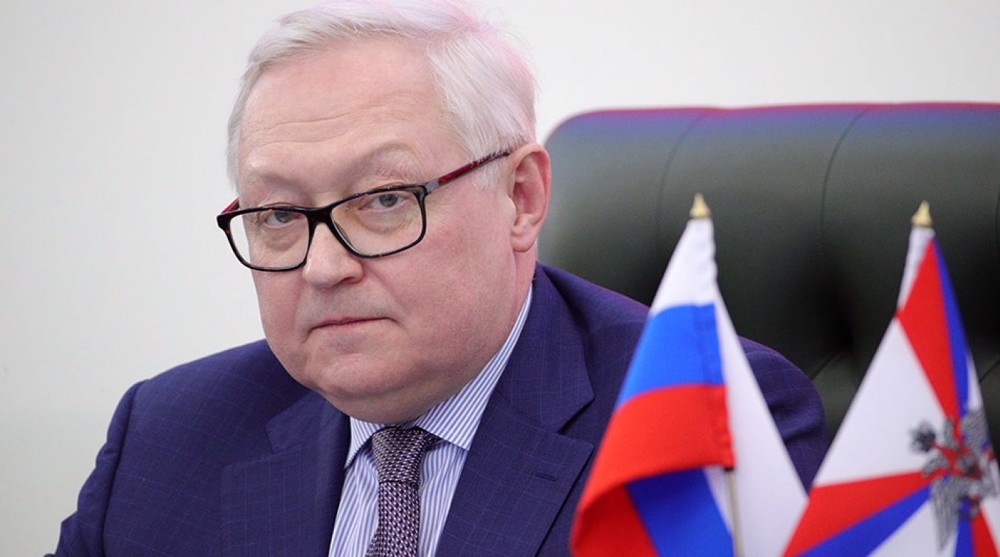



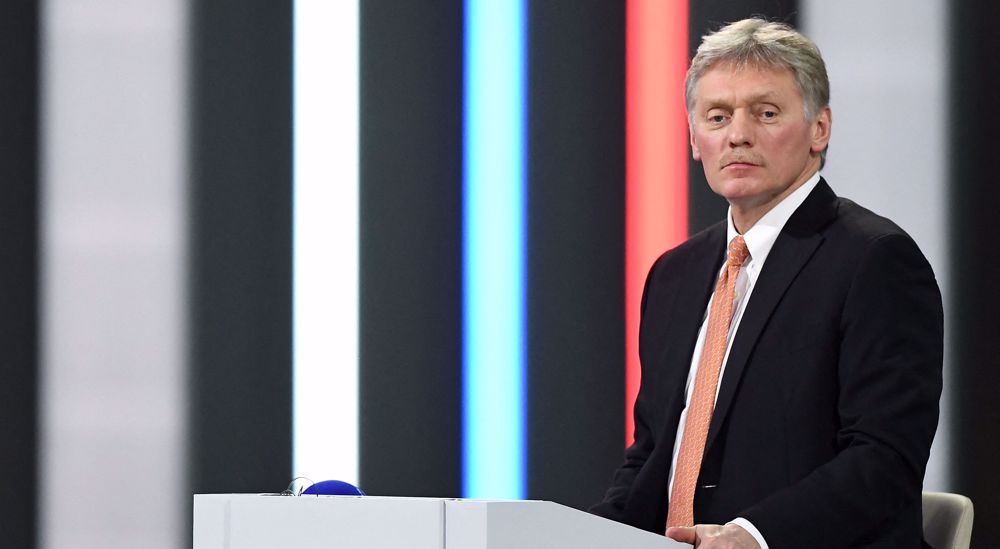
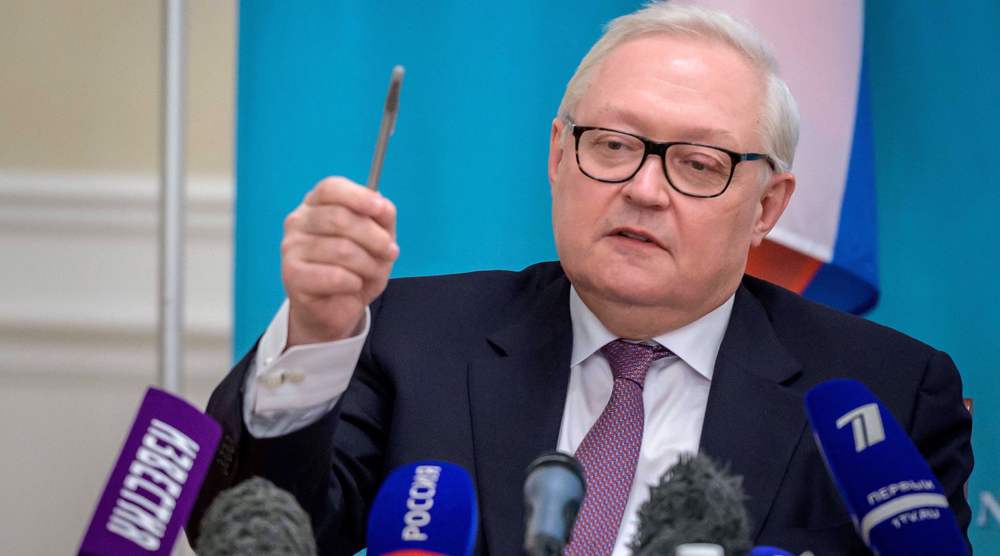

 This makes it easy to access the Press TV website
This makes it easy to access the Press TV website